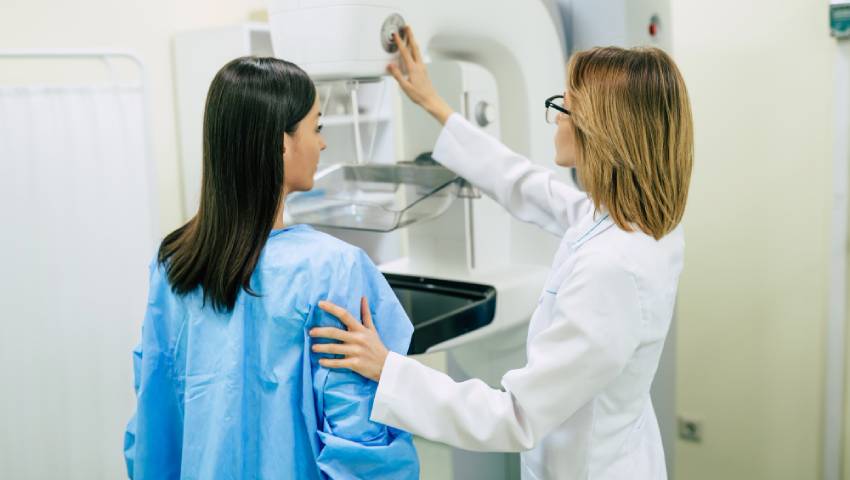
- 27/12/2023
- Dr. Kunaal Shinde
- 0 Comments
- Blog
The Importance of Regular Gynecological Cancer Screenings
In reality as we know it where wellbeing frequently takes a secondary lounge to our warmed ways of life, it’s important to clear light on the importance of regular gynecological cancer screenings. Dr. Kunnal Shinde, a recognized Gyneac Cancer Specialist in Pune, Maharashtra, emphasizes the significance of ending the quiet by wrapping these screenings. In this blog, we explore why regular gynecological cancer screenings are a must for a healthy and peaceful.
Gynecological Cancer: The Silent Threat:
Dr. Kunaal shinde tells about gynecological cancers, including cervical, ovarian, uterine, cervical, and vaginal cancers, which impact millions of women worldwide. often develop silently, without detectable signs in the early stages. While these cancers can be devastating, in any case, fortunately, large numbers of them are preventable or treatable when seen early. This silent progression makes regular screenings a strong tool in early detection, drastically improving the chances of successful treatment. This is where common gynecological cancer screenings come in.
What are gynecological cancer screenings?
Gyneac Surgical oncologist in Pune, Dr. Shinde tests that specialists use to search for early signs of cancer in the reproductive organs. Dr. Kunnal Shinde is concerned with various screening methods, such as Pap smears, HPV tests, pelvic exams, mammograms, and genetic testing, underlining their roles in specifying possible risks. By providing exhaustive information on these screenings, we aim to fit women with the knowledge needed to make informed judgments about their health.
The most standard types of screenings include:
- Pap test: This test checks for irregular cells on the cervix, which can be a precursor to cervical cancer. It is usually done every 3-5 years for women aged 21-65.
- HPV test: This test notices the presence of human papillomavirus (HPV), which is the main risk factor for cervical cancer. It’s often connected with the Pap test for women aged 30 and above.
- Pelvic exam: This exam allows Dr. Shinde to feel for any lumps or masses in your uterus, ovaries, or fallopian tubes. It is usually done during your annual well-woman exam.
- Transvaginal ultrasound (TVU): This test uses sound waves to create images of your uterus and ovaries. It may be used to screen for ovarian cancer in women at high risk.
- CA-125 blood test: This test estimates the level of a protein called CA-125 in your blood. While not a typical test for ovarian cancer, it can be used to help observe women who are at high risk.
Why are gynecological cancer screenings important?
- Early detection saves lives: Gynecological malignant changes repeatedly don’t display side effects until they come at cutting edge phases. By the time signs appear, treatment options become limited, and the forecast declines. Screenings catch precancerous cells or early-stage cancers, allowing for timely intervention and improved results.
- Improved treatment options: Early-stage cancers offer a wider range of treatment options, often less invasive and with higher success rates. This means more limited recuperation times and better personal satisfaction during and after treatment.
- Peace of mind: Normal screenings give true serenity, realizing you’re assuming command over your wellbeing. Early detection can help anxiety and allow you to focus on enjoying life to the fullest.
Who should get screened?
Dr. Kunnal Shinde Suggests all women should get screened for cervical cancer, starting at age 21. The suggested screening schedule may vary depending on your age, risk aspects, and medical record. Talk to our Gyneac Surgical oncologist in Pune about the best screening schedule for you.
What are the benefits of gynecological cancer screenings?
Dr. Kunnal Shinde Suggests many benefits of gynecological cancer screenings, including:
- Early detection of cancer: Screenings detect early cancers or precancerous alterations before any symptoms appear. This implies that there is potential for simpler, more effective treatment with greater rates of cure.
- Peace of mind: Knowing that you are cancer-free can give you peace of mind.
- Improved survival rates: Early detection can seriously improve the possibilities of successful therapy and cure.
What are the risks of gynecological cancer screenings?
Dr. Kunnal Shinde is the best gynecologist in Pune. he is signify cancer screenings are generally secure. However, there are some possible risks, such as:
- Discomfort: Some screenings, such as pap tests, can be painful.
- False negatives: A false negative is a test result that suggests cancer is not current when it is. This can delay diagnosis and therapy.
- False positives: A false positive is a test result that indicates cancer is present when it is not. This can cause stress and worry.
What can I do to reduce my risk of gynecological cancer?
There are a few things you can do to decrease your risk of gynecological cancer, such as:
- Getting vaccinated against HPV
- Holding a healthy weight
- Not smoking
- Limiting alcohol intake
- Exercising regularly
Conclusion:
Regular gynecological cancer screenings are important in the fight against silent and potentially killer conditions. Dr. Kunnal Shinde’s expertise underscores the need for proactive measures, early detection, and education to break the quiet surrounding gynecological cancers. By prioritizing regular screenings, women can take control of their health and well-being, providing a brighter and more beneficial future.

.png)